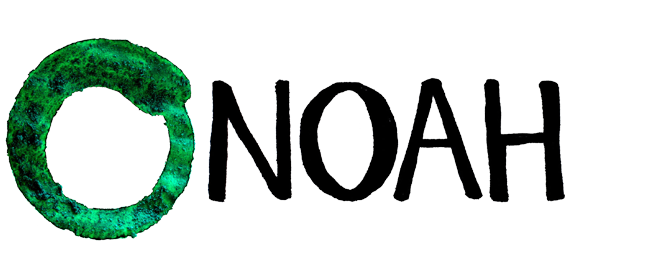EU's nuclear package Press release and position paper of NOAH - FoE Denmark and The Danish Ecological Council
On Tuesday May 11th NOAH-Friends of the Earth Denmark together with the Danish Ecological Council has submitted a position paper to the Danish Ministry of the Interior on the so-called "nuclear package". The nuclear package consists of two EU directive proposals - a directive setting out the basic obligations and general principles on the safety of nuclear installations and a directive on the management of spent nuclear fuel and radioactive waste. The proposals will be discussed at a meeting between EU ambassadors (COREPER 2) Thursday May 13th. The position paper can be found in a Danish and English version at www.noah.dk/energi
Henning Bo Madsen from NOAH FoE-Denmark's energy group states: "We recommend that the Danish government votes against both these proposals, because they are completely unacceptable in their present form. The safety directive no longer contains any requirements for high minimum safety standards or for decommissioning and nuclear waste managements funds to be separated from company funds. And the directive on management of nuclear waste favours exportation and dumping of waste in other member states and third countries, rather than long-term storage with reversibility".
NOAH FoE-Denmark's and the Danish Ecological Council's position paper also points out
- That the Danish government has a clear interest in limiting the preferential treatment of the nuclear industry in the EU, because it distorts an otherwise free and liberalized energy market and leaves Danish producers of renewables that are world leader in their field in an inferior position compared to their European nuclear competitors. The Danish government should initiate a consistent, comprehensive and long-term orientated policy reflecting this fact.
- That the Danish government is in a perfect position to play a leading role in a co-operation or coalition of the 12 non-nuclear countries in the EU.
- That a proper nuclear safety regulation process in the EU would imply not only the implementation of common safety principles, but also high common minimum safety standards and monitoring mechanisms for all nuclear facilities, guaranteeing that common legally, enforceable methods and criteria would be applied. It would also imply the possibility of cross-border "peer review" of nuclear facilities, allowing experts from one member state to carry out inspections in another EU country, if not by a corps of EU inspectors.
- That almost one third of the nuclear reactors are situated in border regions. Currently, 46 nuclear power reactors - 29,5 % of all the nuclear power reactors in the enlarged EU with a total installed net capacity of 37 903 MWe - are located less than 50 kilometres from a national border. 9 nuclear power reactors are located less than 5 kilometres, 6 5-10 kilometres, 8 10-20 kilometres, 9 20-30 kilometres, 11 30-40 kilometres and 8 40-50 kilometres from a national border in the EU. This concentration of nuclear power reactors in EU border regions is by far the highest in the world and is highlighted by the fact that EU has the highest number and the highest concentration of nuclear reactors, as well as the highest production of nuclear power in the world.
- · That if a serious nuclear accident were to take place, the damage in the neighbouring country or countries would not be fully compensated and in some cases not compensated at all. The potential threat in itself constitutes an unsolvable problem to the neighbouring country because its origin is located outside its jurisdiction.
- That a proper nuclear safety regulation process in the EU is currently not possible due to resistance from the large nuclear power producing countries. Consequently, we recommend that the Danish government takes into consideration, whether the political climate would allow for the introduction of such measures for at least nuclear installations situated within 50 kilometres of an EU national border.
"It would be best if minimum safety standards could be implemented on the highest possible level for all nuclear installations in the EU, but unfortunately that is not possible at the moment", says Henning Bo Madsen from NOAH FoE-Denmark's energy group. "The problem is that the non-nuclear states, except for Austria and Ireland, so far have regarded the problems related to nuclear power an internal problem of the nuclear power producing countries. That is why there is not enough political pressure to make safety enhancements possible and that is why we don't have any realistic liability legislation providing for the nuclear companies and nuclear member states to share the burdens imposed on neighbouring countries in case of a serious accident at a nuclear power plant situated in a border region. The unsolved problems pertaining to Barsebaeck are a striking example of this. The directive proposals from the Minister Council do not enhance nuclear safety, rather the opposite".
For further information, please contact NOAH FoE-Denmarks's energy group:
Niels Henrik Hooge, tel. +45 46 35 38 79 and +45 21 83 79 94, E-mail: nh_hooge@yahoo.dk
Henning Bo Madsen, tel. +45 97 37 37 59, E-mail: h-b-madsen@vip.cybercity.dk

